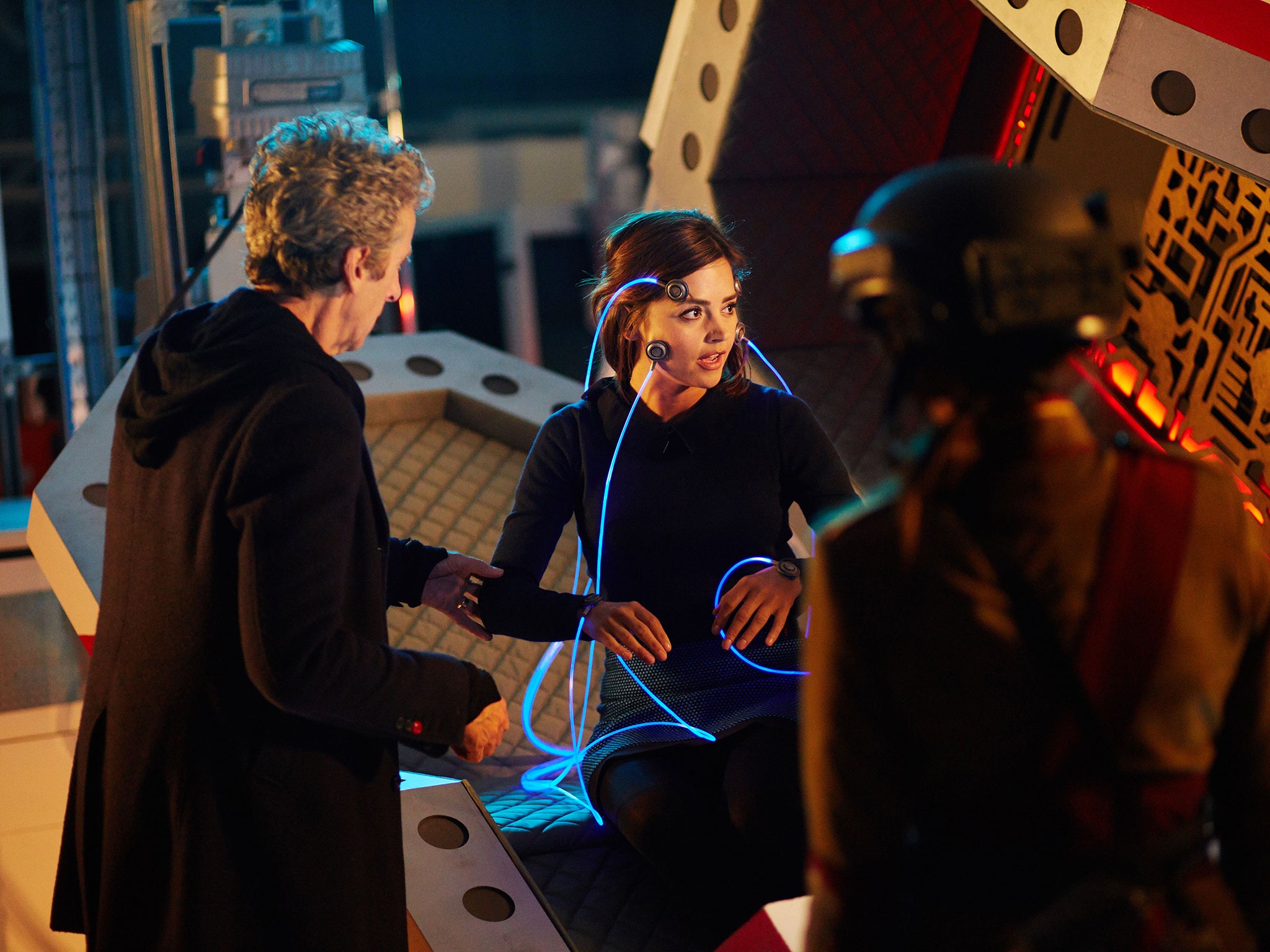Doctor Who, Heaven Sent, TV review: A story likely to be loved and loathed in equal measure
The episode was positively avant-garde in its themes, tone and execution

Countless billions of years punching your way through a wall made of space diamonds probably feels like the blink of an eye compared to the agony Who fans have endured this week. Clara faced the repercussions of her arrogance in the form of a rather grim death and we were left on a massive cliffhanger – where is the Doctor being sent via teleport? Is that really the end for the Impossible Girl? And who are Ashildr's mysterious paymasters? While answers to all those questions are happily forthcoming, that doesn't mean Heaven Sent is a wholly satisfying episode - but it is one of the most uncompromising pieces of TV the show has ever done.
The episode begins mere moments after the end of Face the Raven (give or take 7,000 years) with the Doctor teleporting in to a nondescript chamber in a gigantic, shifting clockwork castle. We soon learn that he's trapped, but not alone - he's slowly being relentlessly stalked by the shambling Veil, a ghoulish and flyblown representation of his childhood nightmares. The Doctor soon discovers that his only respite lies in confession, as telling a truth he'd previously hidden away causes the creature to momentarily freeze. But the Doctor doesn't have that many confessions left, and with nowhere to run and nobody to turn to, how much longer can he last? (Quite a long time, as it turns out.)
And that, pretty much, was the entire episode. The Doctor finding his way around his personal mechanical hell, wheedling out the mysteries of the castle and trying to evade the Veil. Episodes that only utilise found-footage or take the show in an unashamedly political direction might be experimental in Doctor Who terms, but Heaven Sent is positively avant-garde in its themes, tone and execution. It's an episode and a story that offers very little concession to an audience's expectations, and as a result is likely to be loved and loathed in equal measure. But an episode this esoteric needs to be taken on its own terms, and even if next week's season finale casts Heaven Sent in a different light, it's difficult not to be begrudgingly impressed even if it left you baffled, if not outright frustrated.
Steven Moffat's taut and teasing script is full of wonderful concepts and imagery, from the rotating castle itself to the sea of skulls beneath it and the horrendous truth they represent. It's certainly a bold move from Moffat to rely almost solely on Peter Capaldi's strength as an actor to carry the episode's emotional and dramatic core, but with an actor of Capadi's calibre the gamble might not be as risky as it first appears. Whether spitting righteous indignation or breaking down in despair as he faces the reality of (and his part in) Clara's death, Capadli is never less than razor sharp and wholly convincing, taking the character to dazzling new heights. It's not entirely a monologue either, as the Doctor takes time to return to his mental stronghold (naturally the TARDIS) where he can test his evolving hypotheses against an imaginary, mostly silent Clara – presumably a welcome comfort for those left inconsolable after her demise, but not so much of a resurrection that her more vocal detractors will start rolling their eyes.
But while the episode's unique format and plot made for a tense and psychologically chilling episode, there's a possibility its uncompromising nature might have alienated younger and casual viewers. It's difficult to argue that's what going on in Heaven Sent isn't brilliant, because it clearly is. From an artistic and technical standpoint, everything's there – from the writing to the sound to the acting, and definitely to Rachel Talalay’s brilliant direction. If you like your Berman and your Beckett you’ll probably get a hell of a lot more out of it than if you tuned in expecting ray guns and rubber monsters. There’s no argument that it’s different, but is it so offbeat that it will ultimately put people off?
And then from being totally on his todd, the Time Lord has now returned to his ancestral seat to kick ass and chew jelly babies – and he’s all out of jelly babies. Gallifrey’s gonna feel the full force of the attack eyebrows, and I’m banking on an electrifying scene in next week’s finale when the Doctor demands of the High Council of Time Lords why they made him punch his way through a twenty foot wall of space diamonds when they could at least have left him a drill or something.
Join our commenting forum
Join thought-provoking conversations, follow other Independent readers and see their replies
Comments